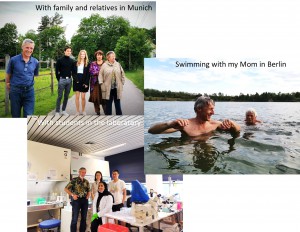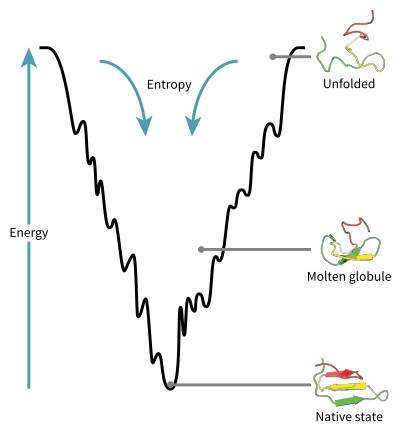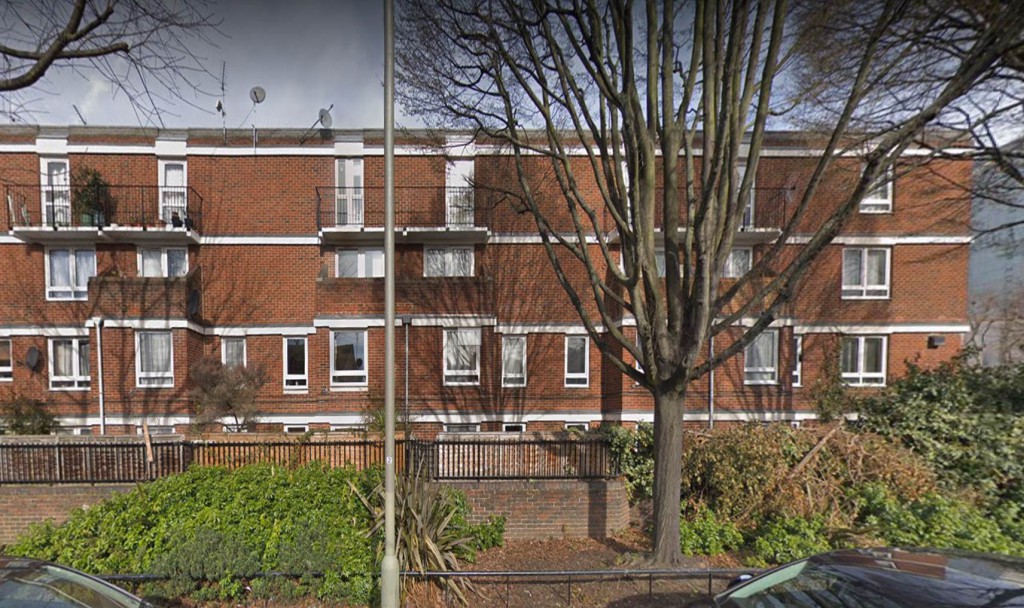To end the exodus of their best researchers after Nazis gained power in Germany, the council of the german industry sent Privy Councilor Max Planck to Hitler. The explosive stupidity of his answer already anticipated the destruction that soon followed: “Well, what does it matter if Germany doesn’t have any leading physicists for a generation or so. Greater things are close to my heart, Herr Planck, German racial purity is close to my heart!”
Antropogenic cosmic debris
Ten years ago, when I started this blog, one of the most extraordinary nights was between 11th and 12th of August, when I was in the company of an Iranian girl and watching for the shooting stars (properly called: The Persides Meteor Shower). Since 5 month already, I was in a state of deep emotional disorientation, and the night when we spotted some of the nicest meteor flashes let me believ for a few hours that my desires towards Asal could have get some support from higher up. At least heaven had send us some really beautiful shooting stars, one of them had its trajectory directly towards us (i.e. it did not seem to fly traversely, but head on to Munich, producing an apparently not moving, but only brightly glowing and rapidly quenching spot rigth in the constellation of Perseus).

View to the night sky in August, to find the Perseus constellation from where the Persides appeares to originate.
Tonight and 10 years later, the night was warm and the sky cloudless, so I sat in the garden and tried to spot the Persides again. During 20 minutes, I saw four quite impressive ones. But at the same time, I saw 6 slowly moving objects in the sky, that displayed continously shining tiny points and which moved slowly via one third of the sky. I think that these have been man made satellites of the Star-Link projects (by Elon Musk).

A picture of Tübingen town hall at night (long exposure). The dotted line on the dark sky (in the center of the picture) is a swarm of the Star-Link satellites (visible to the naked eye)
Into the Great Wide Open …
Whithout being a really big fan of “Tom Petty and the Heartbreakers” (they are decent musicians, with a few hits, o.k.), but their ballade “Into the Great Wide Open” is no doubt irressistible, at least in terms of the tunes. The lyrics are mainstream, with a few good phrases in, for instance “The Sky was the limit”.
Is the sky really the only limit ??? Yes, the least for human creativity, in arts, science and technology. Just see how Elon Musk has shown us not to listen to all the nay-sayers, but look for allies who join you in making your wildest dreams come real.
I will have the chance to take a three year sabbatical from our research center, during which time it will go through a mayor re-structuring. And these are my plans for the three years:
1st year: Take a lecturer position at University of California Irvine (medical stem cell research) and improve my guitar skills
2nd year: Guest professor in Shenzhen University, China, and on weekends work as a nude model for the UK journal “The Garden”
3rd year: Work as guest research associate at the Weizman Institute in Rehovot / Israel, and develop together with the IDF an automated detectors for air-born corona-virus,
Actually, I also have an offer to lead a research group in London on cancer stem cells, but considering that I’m already working for the UK journal “The Garden” as a nude model, I probably will leave this for later.
Hebrew letters
Almost a year ago I began to learn Hebrew. Among the various challenges that a semitic language provides for someone only familiar with German/English/Russian, I initially found it very hard to read hebrew texts. But I than put more effort in learning to read, and at home with the text books from the school and with the help of the Rosen School of Hebrew I managed to improve. What I have not considered, though, are all the possible variations in the character style that you find outside of the class room. Whereas at the school, we got used to a standard character type (similar to the one you might find in religious books), the written language that I was confronted now in Israel is much more variable. It is influenced – as in any other language as well – by the attempt to look special by a cool design. But in ones own language, one almost overlooks all these typografic variations in the text style. More or less unconsciously, we immediately extract the content of the words, and pay little attention to the specific style of the characters.
But in a foreign language, in particular if you are still in the early learning phase, the different ways how the characters are designed are a constant source of miss-reading.
Here are a couple of frequently used style variations of the letter “Shin” that you can find within 10 min walking through any mayor city in Israel:

Common variants of the letter “Shin” in modern writings. (Bottom left is the classical style one might find in the Tora)
Also very variable is the typografie of the letter “Lamed”. Oddly enough, some variants even resemble German runes as were used by the notorious anti-semitic SS.

Variations in typografie of the letter “Lamed” commonly used in modern writings. The one in the middle of the lower lane again is classical Tora style.
These are the original sign-posts from which I collected the two letters. You can see, they come from swimming pools, elevators, car-parks, fire extinguishers, pre-election campaign posters, number plates of cars and others.
The James Bond Lecture Series
Despite my utmost reluctance to those notorious “xxx rules for a successful life/project/date” list that one can find on many blogs, I always wanted to summarize the reasons why I still consider the James Bond 007 movies quite an intelligent piece of philosophy (or shall I better call it “lesson for life” ?)
Although the Bond movies are mainly viewed as a regular and meanwhile slightly repetitive piece of entertainment, I always saw them as a source of learning particular aspects of life. Here are some useful lessons I took from the 20+ sequels of Bond movies:
- For a man, some scratches or scarves on the skin shall be weared with pride. They are a mans real jewelry.
- For a cool man, it is absolute acceptable to disappear occasionally, so nobody, in particular bosses or admin people dont know where you are (Moneypenny: “James, where have you been. The prime minister desperately wants to talk to you !!!”
- You shall leave no doubt of how little you appreciate any hierarchy, and how little you seek climbing up the career.
- At the end, it is the lonely cowboy who will seduce the most beautiful girls and experience highest pleasure with them. The higher ranks behind their office desks get thin hair and back pain instead.
- It is not considered a treason if you start a romance with a beauty from the opposing force. She will soon turn from an enemy combattant to a curring pussycat (and beside the pleasures she will give, she might even become your most loyal ally).
.
A 40 years long dead end road: Iranian Woman after the ’79 Islamic Revolution

Iranian students pictured in the Seventies

Iranian basket ball athlets in the mid 60s. The regime of Shah Reza Pahlevi promoted a modern, western living style of woman.
But this period of personal freedom came to a immediate end: On march 7th Ayatollah Chomeini announced, that all woman have to cover their head in public. This old wannabe despote argued that woman should not be encouraged to go out and show up naked on the streets. This new law caused an uproar among the Iranian woman, mainly those of the urban society. On the following day, March 8th or the International day of Woman, tens of thousands from all political factions were out on the streets. Carried out by mothers, daughter and their grandmas, religious and non-religious people, this was the first stand up against the islamic regime.
</p>

Rebellion against the new islamic variant of indoctrination: The Iranian woman were the first who went out and demonstrated for freedom and civil rights after the new Chomeini regime tried to silence all political opponents in 1979. Foto: Bettmann/Getty Image
40 years later, all the dreams have gone in vain. The pursue for freedom is kept hidden under the omnipresent Tschador.

Spending most of their lifes under the chador. The daily problems of financial and material decline left no space for dreams of freedom and self determination.
And the woman of the younger generation can rarely imagine what their grand-mothers were demonstrating for on the roads and squares of Tehran some 40 years ago. For the students who grew up only under the mullahs-regime, freedom of expression and the pursue of self-determination bears the flavour of heresy.

The young generation of woman dream of a little bid of “normal life”, i.e. less economic problems, but more financial security. Political or intellectual freedom has to come secondary.
To be continued soon: J.D.Salingers amazing stories
This was really a great news what J.D.Salingers son Matt revealed a couple of days ago: that a whole treasure of yet unpublished texts by his late father Jerome D. Salinger has now been evaluated and awaiting its release to the reading audience. I can not say how impatient I am from now on, to have the first post-mortem new short stories by one of the great figures of 20th century modern literature in hand.
The last text that could satisfy the appetite of Salingerites was a non-fictional, but partly imaginary essay by Frédéric Beigbeder about the realtionship between Salinger and Oona O’Neill (Oone Chaplin). But the prospective of reading stories or novels by the master himself is of course another category of shit.
Having seen the loss of so many amazing writers durign the last years (Philip Roth, Lars Gustafsson, Amos Oz, to name just a few) always came with the certainty that one cannot expect any new words from their desk and their mind. This was it, finito. You might read their published books again and again, until you know every sentence by heart, but don’t wait for any novelty any more. In some cases, such as Philip Roth, the sadness about the end of an autors productivity in fact already started years before he died physically. In any case, other than for many rock stars who annonced their final concert again and again (to sell more tickets, of course), with writers one can be quite sure that when they say “Last Call” they stay to their promise. And when they die (always too early, of course), rarely are there still unpublished manuscripts in their heritage that can cope with their already published books. The news from Salingers son, however, could changed this now. As he revealed in an exclusive interview with the Guardian, his father has definitely never stopped writing and that “all of what he wrote will at some point be shared”. Matt Salinger told the Guardian his father “teemed with ideas and thoughts – he’d be driving the car and he’d pull over to write something and laugh to himself – sometimes he’d read it to me, sometimes he wouldn’t. And next to every chair he had a notebook. And these notebooks were filled for the last 45 years of J.D.Salingers life (he died in 2010 at the age of 86). As Matt Salinger described his father, “He just decided that the best thing for his writing was not to have a lot of interactions with people, literary types in particular. He didn’t want to be playing in those poker games, he wanted to, as he would encourage every would-be writer to do, you know, stew in your own juices.” This sort of reasoning could also come from Thomas Pynchon, and as he has shown so perfectly creates not the worst condition for creating excellent literature. Therefore, I have hope now that soon some new books can be added to my J.D.Salinger collection, which entirely dates from the 70s and 80s.
You can see here that they all look a bit used, and they are of course all from East-German publishers (Reclam, Volk&Welt).
The first one (“Catcher in the Rye” or “Der Faenger im Roggen”) I managed to by in an export book shop in Prague in 1979. “Franny and Zooey” and “Hebt den Dachbalken hoch” I was lucky enough to grab from the army book store at the baracks in the mid 80s (I had established an illegal traffic network that allowed me to get every rare book before it was put on the shelves). And the last collected short stories “Neun Erzaehlungen” and I received from the central East-German books wholesaler. There a lady from the neighbors appartment were working, to whom I occasionally did babysitting for her daughter.
In the high-street book stores, however it was virtually impossible to buy these books: The printed copies were to few (just 10 or 20 thousands), and the young people were so much in reading, especially modern american writer. So despite “Catcher in the Rye” is considered one of the most published post war books in the West, economic and political restrictions in East Germany prevented a similar popularity there. Therefore, the story of Holden Caulfield and his peculiar view onto life and the world remained a sort of secret or elite knowledge on the Eastern side of the iron courtain. But with some extra effort and some dealing, everybody could explore and discover Salingers universe for himself.
What is funny, but also sad: When I ask around my colleagues at work or friends here in the traditional West Germany about J.D.Salinger, I soon realize that this name does not sound very familiar to them. For most of them, “Lord of the Rings” and “Karl Mays Winnetou” is the highest form of literature they ever encountered. Therefore my excitement about the prospective of J.D.Salingers hidden books now is slightly over-shadowed by my worries that they wont become best-sellers any more, as were his novels and stories in the 70s and 80s. But for the few Salinger afficionados and literature critics it will become a highlight.
Tyrannocide – A Pledge
When one thinks about the event that happened 40 years ago today, it might be a good occasion to reconsider tyrannicide, i.e. the right to assassinate a tyrannical dictator. On February 1st, 1979, Ajatollah Khomeini entered an airplane in Paris, where he lived in political asylum, and returned after 15 years to Tehran. Iran was suffering from political vacuum after Shah Rezah Pahlevi had abandoned the Peacock throne, and the poor and angry mob was raiding the streets. Khomeini quickly picked up this unique chance, presenting himself as the people’s savior and turned from an islamic scholar to the “supreme leader” of the country. Initially sugarcoating his real intentions with the promise of political freedom, democracy, civil rights and an equal share of the countries wealth to everybody, he soon let fall down his camouflage and without remorse announced his unsatiable appetite for tyrannical power. He ordered the assassination of everyone he considered an political enemy, and openly declared that jurisdiction should strictly follow Allah’s command. Political opposition (such as the Tudeh party, or the Mujahedin-al-Khalk) he declared apostasy (moharab), and its representatives to be killed with or without trial. Estimates amount to several tens of thousands, who were guilty of nothing more than keeping their intellectual independence and were killed by Khomeini’s thugs for this “crime”.
So with our current knowledge it is clear that anyone who would have killed Khomeini would have earned great merits for deliberating the Iranian people from tyranny. And indeed, when in the afternoon of February 1st 1979 the airplane with the Ayatollah on board entered Iranian territory, there were fears among the passengers – Khomeini was accompanied by several political allies and reporters such as the German Peter Scholl Latour – that the air defense troops still bound by oath to loyalty to the Shah might shoot them off the sky.
Its somehow a tragedy, that at this moment the army was already paralyzed by the defection of their supreme commander, and apparently none of the lower ranks had the courage of committing a proactive tyrannicide against Khomeini.
Tyrannicide has been morally justified by several politicians, philosophers and theologists, such as Thomas de Aquin, Plutarch, Benjamin Franklin, John of Salisbury, Abraham Lincoln or John Milton. The German writer Frederik Schiller in his ballad “The Pledge” (German: “Die Bürgschaft”) showed the high moral standard of the central character, Damonius, who is caught after an attempted assassination of the gruesome tyrant Dionysius.

Die Buergschaft (engl.: The Pledge) by Fredrik Schiller. One of the rather few cases that a German thinker morally defends a tyrannocide.
But in the cases of the airplane which carried Ayatollah Khomeini back to Iran, and the idea of shooting them down with a ground-to-air anti-aircraft missile one has to partially understand the dilemma of the air defenses troops and their commanders: Perhaps not even in the darkest imagination could they foresee in January 1979 the scale of atrocities, violence, tyranny, which the Islamic leaders would commit against the Iranian people during the next 40 years. The idea to prevent a crime by arresting (or eliminating) the criminals before they become active is still a fantasy in a Spielberg Movie “Minority Report”. But for a political crime (like tyrannic dictatorships) which involves the destruction of the life of so many innocent people, this would be a great gift to humankind.
Affirmative Action: Being torn between heart and reason
My reasoning brain tells me that affirmative action is something against nature. Because if nature would have allowed affirmative action, than the gazelle would have never developed into such a fast running and beautiful animal (intended to escape the predators), but evolution would have stalled at the stage of slow and lethargic goats. Instead, survival of the goats would have to be promoted by arbitrarily punishing a hunting cheetah with electric tasers, in order to fulfill a moral mission of supporting life of a creature in an unsuitable environment .
But one even does not has to go as far as to Darwinian evolution and survival of the fittest to find reasons against affirmative action: Already on the submicroscopic level of macro molecular structure, the proper folding and hence functionality of proteins is governed by rewards and penalties which follow eternal, naturally given rules. Positively and negatively charged amino acids have a tendency of attraction, hydrophobic groups hide in the the center and hydrophilic groups are more exposed at the periphery of a protein. Affirmative action should encourage us (for the sake of justice) to equally allow also the hydrophobic amino acids to be exposed at the proteins periphery. Wouldn’t it be morally wishful to give any amino acid – independent on its inherent properties- the chance to be “visible to the outer world” ? And indeed this would be possible, at least in a lab environment: Just heat up the proteins, and let them cool down slowly, and they will take any random configuration, with any of its amino acids having the same chance to pair with any other one, and equally likely being located on the outer surface or in the inner space.
By increasing the thermal energy (i.e. the temperature) the protein first unfolds to a more or less “anarchic” state. And when one reduces the temperature again, it will adopt all sorts of non-native meta-stable configurations (as shown by the local minima in the curve above), at which most of the amino acids occupy positions that are non-canonical but random. Here we might have an endless debate about what is canonical and what is not. Maybe one preferes one of the many metastable protein configurations much more than the native state. In fact you might like or dislike what you want, but fact is that the protein functions only in its native state. So whatever our moral subjectivity tries to tell us, there is only one configuration that works. And at this native configuration, all amino acids occupy their intended position. All the non-native states at which amino-acids are allowed to adopt non-canonical positions will in most cases lead to severe funtional impairment and diseases. In fact, some of the most devastating diseases – and some of the less treatable ones – are known today as being caused by protein misfolding. Alzheimer disease, Parkinson, Morbus Huntington, Cystic Fibrosis or other so-called proteopathies are of cause not the result of affirmative action by a benevolent human being, but of the detrimental interplay between genetic mutation, environmental factors and maybe a slow decline in cellular check-up machinery. But the result is the same: The distortion of a native state and the formation of random and hence pathogenic states.
As a scientist, I therefore have big objections to a widespread use of affirmative action. I don’t think it serves any good to promote – for good intention – a self-declared suppressed minority by discriminating the rest of the society. The human society is so diverse and complex that one can easily and arbitrarily define sub-groups (“tribes” to use a modern term), which by using questionable surveys can be shown to “suffer” from one or the other form of social discrimination.
Take for instance something very obvious: your home address. When we lived in London, our house was in the nice middleclass neighborhood of Battersea/Wandsworth. Our postal code was SW11 2AZ. A friend at work then asked me how it feels to live in such a wealthy borough. Wealthy boroug ??? I asked him, after I had been involved in a fight with a drunken neighbor a few days before. It appeared that SW11 is in general considered to be of a good socio-economic background, and indeed just a few hundred meters away lived bankers, layers and folks from the media business. I was told that with my address and the SW11 postcode, I could easily apply for a well paid job in the financial industry. In the UK (and apparently other coutries like the US as well) your address postcode is used as a synonyme for your social status. On the other hand, of course, living at the “wrong” postcode (for instance Bethnal Green E2 6AU or Peckham SE15 5RJ) can be a really obstacle if you want to get a good job or intend to apply for a mortgage (“location, location, location, that’s what counts”). When we believe in the beneficial effects of affirmative action, then we should turn this upside down and provide special quota of job positions or mortgages to be given to applicants from “dodgy postcodes”. With my SW11 postcode, I would have than been blocked from getting a good job or an affordable mortgage. But wait, our address in Battersea/Wandsworth was Jansen Walk 13, and isn’t number 13 known to be considered also a bid scary ? Maybe I should have tried to promote myself as member of the discriminated tribe of No.13 residents. With some lobby work and some social media activities it should be possible to raise enough attention to fight for my (or OUR) case. At least in the case of getting a negative answer to a job application I could accuse the employer of discrimination because of my house number 13.
Affirmative action is not such a big issue here in Germany, (except for womans quota) and maybe that was the reason that against my own judgement I recently followed my heart and not my mind. It happened at the refugee camp nearby, where I regularily help the school kids of the asylum seekers with their home work. And sometimes the parents of the kids also ask me for help with the language or with some beaurocratic issues. Nilab, a young mother from Afghanistan initially wanted me to help her with the language. She currently attends an integrative school to make her fit for a proper job training. For this, she already applies for apprenticeships as construction draftswoman. After a written application at a technical college she was asked to participate in an online test (obviously, the college forwared all applications to an assesment center). Nilab was pretty nervous, considering that she is still not 100% familiar with the German language, and the online test requires a really quick understanding and answering. So I agreed to “assist” her with the online test, which of course is against the rules. And “assisting” did not ment explaining her the question (which would have taken much to long), but I answered about 80% of the questions myself. I knew that this was not right, somehow in violation of my feeling that one should not positively discriminate a person to provide her with an advantage in a competitive situation. I found the proper term for my doing, “Affirmative Action” only recently in the book “12 rules for life ” by Jordan Peterson. Whereas in many points I can agree with his arguments, in the special situation of Nilab, a war refugee from Afghanistan, who is running her young family, living in a single studio of a refugee camp, learning a difficult new language, and above all is committed to learn a good and ambitious profession I saw no problem of promoting her against many obstacles of a western society.








